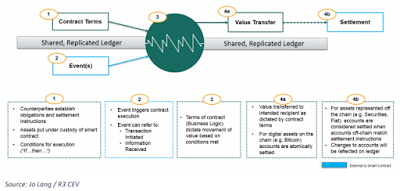Nick Szabo, the author of
bitgold, the most complete conceptualization of a decentralized currency prior
to bitcoin, the person who coined the term smart contracts in 1993, and
believed by many to be Satoshi himself, published a one line blog post
today which simply contained a link to his twitter account.
The last known public communication from Nick Szabo was in November
2013, almost seven months ago, leaving many to wonder whether he would
ever post again. The seven months silence seems to have followed
increasing attention on Nick Szabo after numerous suggestions that
he might be Satoshi.
In April 2014, researches from Aston University’s Centre for Forensic
Linguistics claimed that forensic analysis of Bitcoin’s White Paper
suggests that
Nick Szabo was the author of the paper.
Nick however has categorically denied
that he is Satoshi and many argue that it is highly unlikely that he is
the author of the white paper. Nick seems to have been focused on
bitgold, writing a blog post about bitgold two months after Satoshi
announced bitcoin.
Furthermore, there are
unconfirmed reports that he attended Princeton
Bitcoin conference with Gavin Andresen in March 2014 as well as an unconfirmed job post stating that Nick was working with Vaurum on smart contracts. Neither Vaurum, nor Nick, have yet replied to requests for comments.
Little is currently known about Nick Szabo. There are no known
pictures of him, no verifiable details of his age, location, profession
or education. Previously, in a Wikipedia article, it was claimed that he
was a law professor at George Washington University, but
reporters claim
that after contacting the University they found no record of a person
named Nick Szabo ever being a professor at that university, although
there was one record of a person having studied at that university under
that name. The name therefore might be a pseudonym, a pen name.
Nick Szabo Highlights the Dangers of Centralized Currencies
Nick’s latest
tweet is a
retweet of a statement by Proton Mail complaining that their PayPal
account had been frozen, blocking access to $275,000 of funds. In a
statement in their blog
Proton Mail details what happened:
“When we pressed the PayPal representative on the phone for further
details, he questioned whether ProtonMail is legal and if we have government approval to encrypt emails.”
This highlights the problem with centralized currencies and
intermediaries as emphasized by both Nick Szabo in his blog post and
Satoshi in his announcement on bitcointalk. We need to trust that our
accounts will not be blocked, our funds will not be tampered, our
government will not arbitrarily take funds, or that our banks will not
bankrupt our country as they did in Greece and Cyprus.
With bitcoin, we
need no such trust. There is no authority that can block our private
keys to interact with our public keys, so accessing our wealth and using
it in whatever way we alone see fit.
Open your free digital wallet here to store your cryptocurrencies in a safe place.
